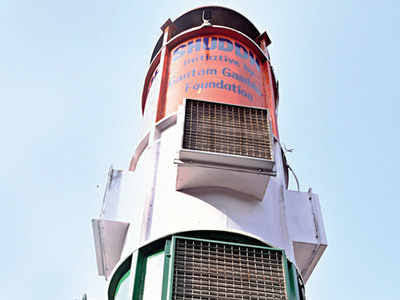Bhel’s air pollution control tower prototype unveiled in Noida
18 November, 2021 | Pragati Singh

On Wednesday, Union Heavy Industries Minister Mahendra Nath Pandey inaugurated the Air Pollution Control Tower (APCT) prototype developed by state-owned Bharat Heavy Electricals Ltd (Bhel) in Noida...
On Wednesday, Union Heavy Industries Minister Mahendra Nath Pandey inaugurated the Air Pollution Control Tower (APCT) prototype developed by state-owned Bharat Heavy Electricals Ltd (Bhel) in Noida.
“Inaugurating the APCT, the Minister said that air pollution in urban areas especially National Capital Region, remains a serious problem, adversely affecting the health and quality of life of citizens. He further stated that efforts are being made to eliminate the pollution at the source itself,” Ministry of Heavy Industries said in a statement.
This comes in the backdrop of Delhi NCR pollution, caused due to crop stubble burning in Punjab and Haryana, becoming an annual political flashpoint between the Aam Aadmi Party (AAP), Bharatiya Janata Party (BJP) and the Congress. According to the government, an acre of land produces around two tonnes of stubble.
“The APCT operates by pulling polluted air through its base and capturing the particulate matter in filters installed in the tower. Clean air is then released from the top of the tower. The captured particulate matter gets collected in the hopper at the bottom of the APCT for periodic removal for disposal,” the statement added.
The crop stubble burning season has started this year again, after the national capital saw clear skies during lockdown due to the coronavirus pandemic.
“National Capital Region is plagued with the problem of air pollution especially in winter months, with Air Quality Index deteriorating to hazardous levels, which is a matter of serious concern for the health of the local population,” the statement said.
Thick smog, now an annual phenomenon in northern India due to burning of husk by farmers in the states of Punjab and Haryana, combined with pollution has exposed the region to the risk of power blackouts annually during this season as reported by Mint earlier.










